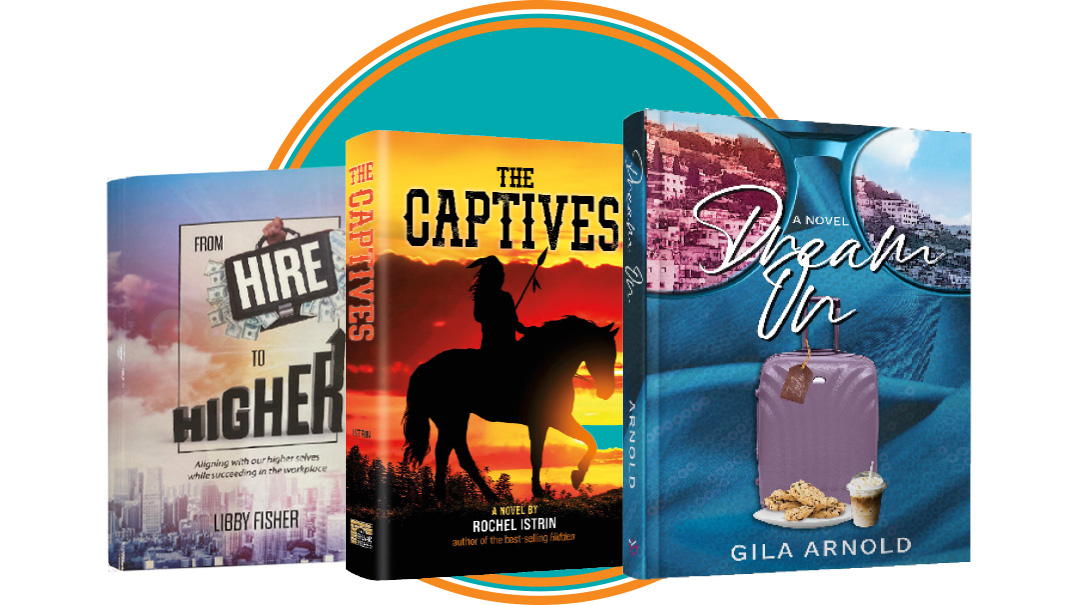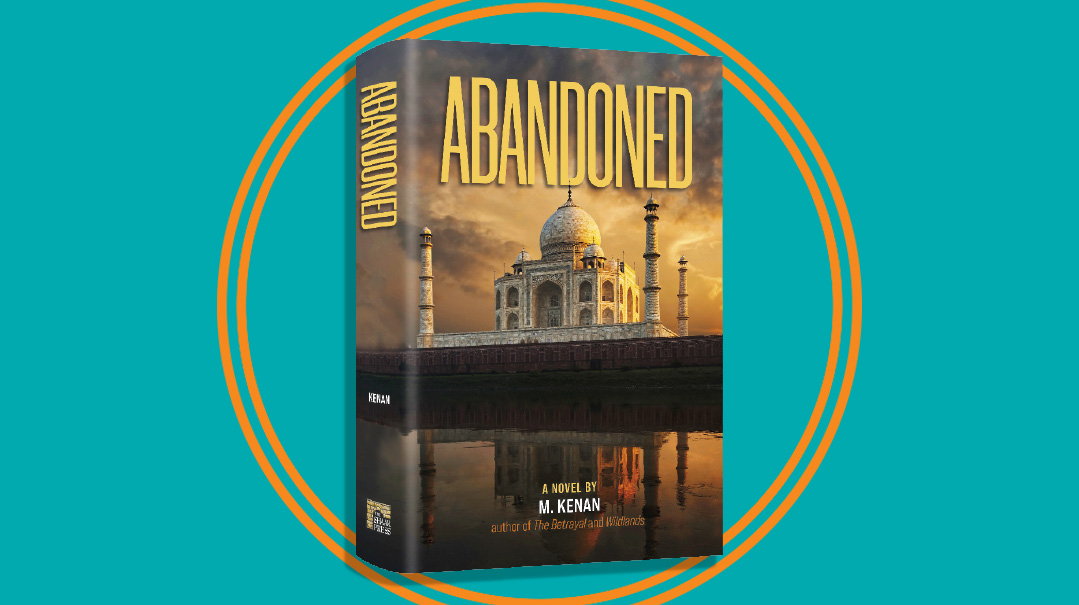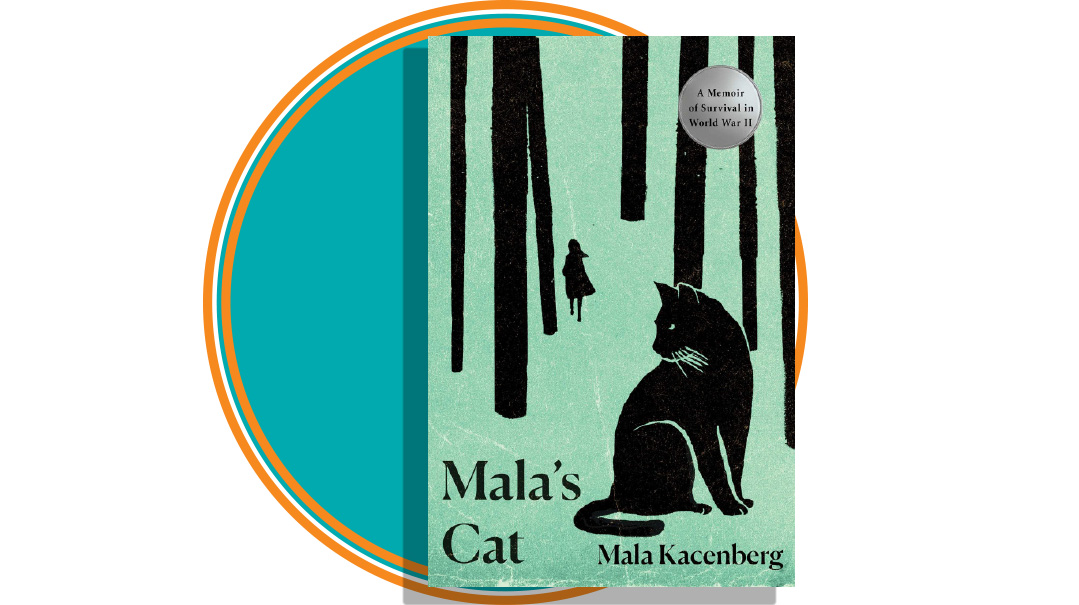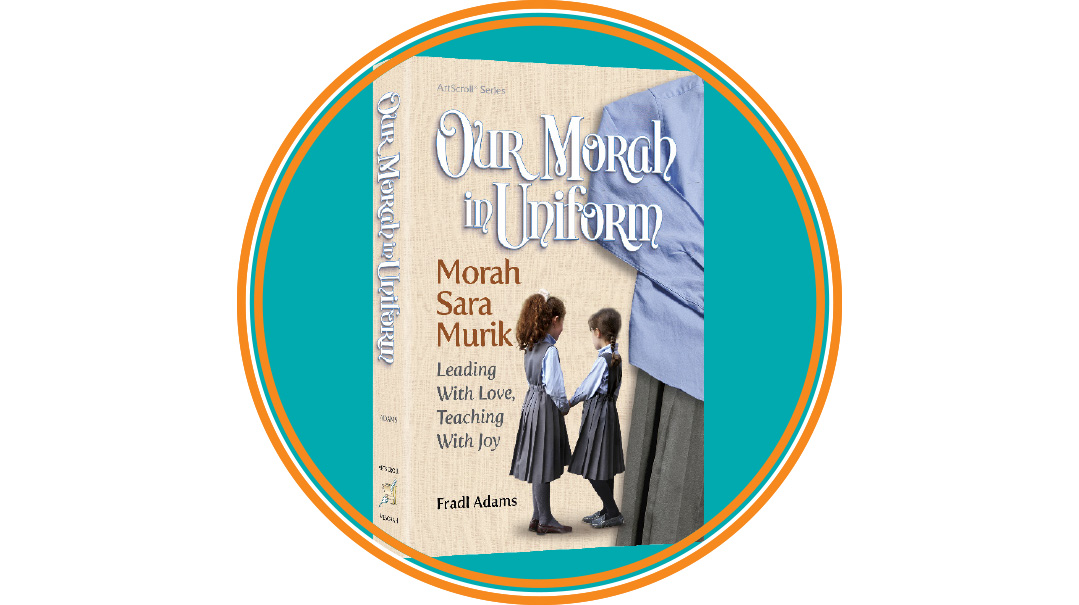Talking Divorce: A Torah-based guide for navigating and surviving difficult relationship decisions
| October 12, 2021Essential information, useful checklists, and practical guidance from rabbis, attorneys, and mental health professionals
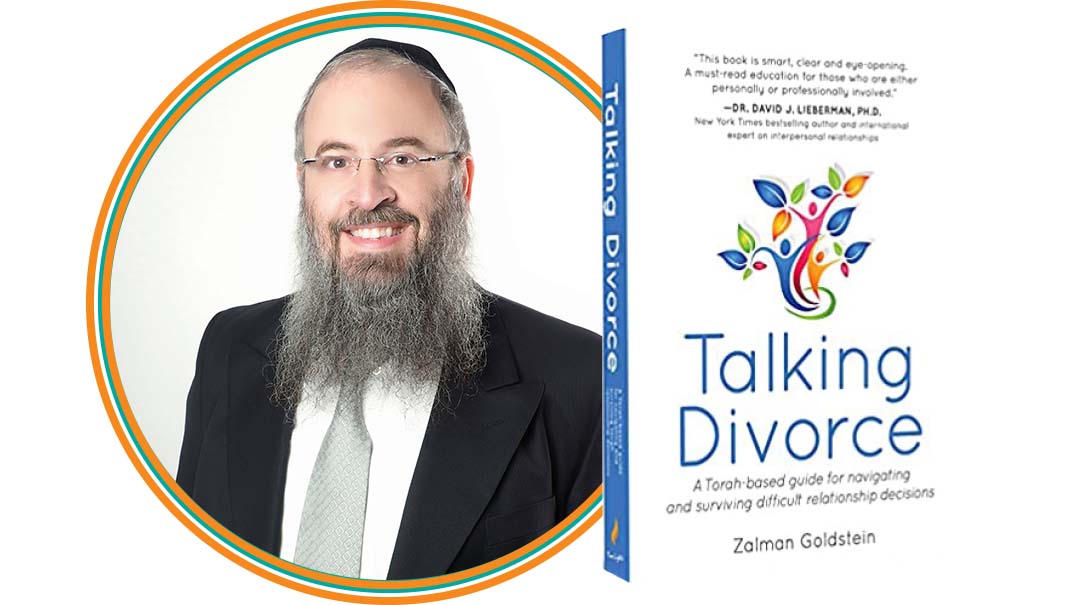
Book: Talking Divorce: A Torah-based guide for navigating and surviving difficult relationship decisions
Author: Rabbi Zalman Goldstein
Publisher: Distributed by Feldheim
The book in two lines
Talking Divorce is a down-to-earth guide with essential information, useful checklists, and practical guidance from rabbis, attorneys, and mental health professionals for navigating relationship breakdowns, reconciliation considerations, divorce, and life post-divorce.
It clears up many misconceptions, illuminates relevant halachic and civil processes, and arms readers with the knowledge needed to make sound decisions at every crossroad.
The author in three lines
Rabbi Zalman Goldstein has written on Jewish topics for more than 30 years.
Some works include The Shabbat Table Companion, The Jewish Wedding Companion,
Going Kosher In 30 Days!, The Rabbi’s Companion,
Jewish Living Simply Explained, and The Kotel Siddur.
This book was sparked by
Having recently worked on two volumes of Rabbi Shais Taub’s answers to real-life questions,
I saw questions regarding shalom bayis, divorce, and remarriage were the most frequently asked and often the most heart-wrenching.
Being divorced myself, many of the issues resonated,
and I longed to write a comprehensive yet approachable book to serve as a Torah-based resource for for couples.
When I was approached early last year by Rabbi Taub and Kalman Wolchok to research and write just such a book,
I took it as a sign from Above that the time had come.
This book is for
Anyone experiencing a marital crisis, including those entertaining thoughts of divorce, those getting divorced, and those post-divorce dealing with emotional recovery, co-parenting issues, remarriage, etc.
I also hope family and friends of that audience read it too, and come away with a deeper understanding of the decisions and processes involved.
This will help them offer nonjudgmental support to those going through these struggles.
Readers walk away with
Firstly, practical, fact-based information relevant to each stage. The book helps dispel misinformation and often counterproductive advice which threatens those making life-changing decisions.
Additionally, I hope they’ll have more confidence in their decision-making; the courage to introspect before throwing in the towel on marriage; an understanding that divorce isn’t always the solution;
an understanding that if divorce is necessary, it’s possible to go about it in a rational, peaceful manner, such as using mediation in a competent Beis Din to resolve all issues,
versus a soul-destroying and financially ruinous battle in secular courts.
I hope they’ll have more hope and sense of agency over one’s thoughts, actions, and reactions, including recovering and rebuilding life after divorce;
and complete acceptance of the new reality, taking comfort in the knowledge that what has happened had to occur for some reason best known to Hashem, and that He’s always at your side, holding you and your children tight, even when it doesn’t seem so apparent to us.
An early experience that showed you the power of writing
I always had a great love for words. I owe a special thanks to my father, Rabbi Yosef Goldstein (“Uncle Yossi”) a”h, who was a master storyteller and beloved educator (he was the assistant principal of Bais Yaakov of Boro Park for over 40 years).
His spellbinding way of communicating made a great impression on me.
While I remember creating stories and composing scripts when I was nine or ten, I began writing seriously when I was studying for semichah at age 21.
After I published my first book The Shabbat Table Companion, I realized the potential of helping many people through meaningful writing.
The book you’ve read countless times
Think Jewish by Rabbi Zalman Posner.
The hardest part to write
Probably the chapters about how some spouses use “scorched-earth” vindictive litigation for divorce and custody related matters in civil court, or become uncooperative/toxic coparents.
Then there’s the section about the pain and menace of parental alienation, heart-breaking because of the life-long damaging effects it has on children,
and how it rips families further apart on top of the existing trauma from divorce itself.
Reality check
It was eye-opening how unanimously every psychologist, therapist, marriage counselor, rabbi,
and divorce attorney I spoke to expressed how many hundreds of people they knew going through divorce who thought they were trading something bad for something better,
only to end up with something much worse for them and their children
Writing that has been an integral part of your journey
There are so many. If I had to choose a few authors it would be the Lubavitcher Rebbe, Rabbi Menachem M. Schneerson; Rabbi Avraham Twerski; Rabbi Immanuel Schochet; Rabbi Zalman Posner; Rabbi Aryeh Kaplan; and Miriam Adahan.
What motivated you when things got hard
The idea that each of us has a note to play in Hashem’s grand symphony, and that the world needs to hear ours for its healing and perfection.
There’s a passage in one of the Yehi Ratzons in the Maaneh Lashon — a collection of tefillos recited at the resting place of a tzaddik — that always resonates, and I often remind myself of this request to re-center myself:
“Ve’ehyeh min hamo’ilim umashpi’im tov l’chol adam tamid,” which means “May I always be of those who are useful and who provide goodness to the world.”
Significance of the title
Coming up with a title I liked was a process. I first thought of Rising from Divorce: A Torah-Based Guide to Divorce, Recovery and Rebirth. But I realized that would imply the book is only for those already divorced,
but a good portion of the book is written for those who still have a chance of saving their marriage. It was a struggle to find a title that would appeal to a wide audience on “both sides of the aisle,” so to speak.
Talking Divorce: A Torah-based Guide for Navigating and Surviving Difficult Relationship Decisions, seemed to less constrain the scope of the book, and I went with that.
A song that pulls you through challenge
The powerful lyrics written by Rabbi Ephraim Wachsman and set to an age-old chassidic melody (“Niggun Simchah” by Rabbi Shamshon Charitonow).
In moments of despair, that song takes me to a place of emunah and peace.
The opening verse and main chorus go like this: “I believe in Hashem, I trust in Hashem, there never is a moment when I am alone and on my own, I believe and I trust in Hashem. Because I understand that He’s holding my hand, and every step is perfectly planned.
He’s holding me tight, so I’ll be alright, I believe and I trust in Hashem.”
The remaining lyrics are equally profound and faith-nourishing.
(Originally featured in Family First, Issue 763)
Oops! We could not locate your form.

